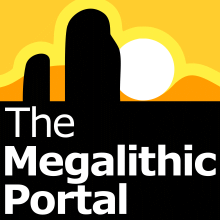<< News >> Romans' brutal crackdown on Celts
Submitted by PaulM on Sunday, 10 July 2005 Page Views: 4818
Discoveries
A sprawling Celtic 'proto-city', as significant to its Iceni occupants as modern-day London, sprawled across eight square miles of West Norfolk, almost certainly providing a regular home to Boudicca.
David Thorpe, from the Sedgeford Historical and Archaeological Research Project (Sharp), is excavations director for the site - the exact location of which is not being disclosed.
Speaking yesterday, he explained the team have discovered burnt fragments of wattle and daub and stains in the earth. They believe these are the remains of a roundhouse which was razed to the ground by Roman invaders almost two millennia ago.
Much of this evidence has been available over the nine years excavations have taken place. But it is only now that the team feels confident enough outline their analysis in full after the conclusion of excavations.
Mr Thorpe said: "It seems there was a thriving population in the area and then, in about 60 or 70AD, the record completely stops. There is also a lack of Roman finds in the area.
"When you compare this to other areas across the country, it is extremely unusual. Most communities were conquered or peacefully accepted Roman rule so there are Roman finds.
"It seems this was a strong-minded population doing everything it could to resist the Roman empire - probably the last place to remain independent.
"But the Romans did not tolerate insurgency and they would have stamped down on it hard, destroying the settlements and selling the population into slavery."
As the Celts left no written records, much of the story remains informed speculation.
But structures unearthed include signs of palisaded boundaries separating areas and an oval of banks and ditches suggesting a fortress. Finds of exquisitely crafted jewelry suggest this would have been a centre for the Iceni's aristocratic caste, hinting at Boudicca's regular presence.
When the Romans invaded there was initially little conflict in East Anglia. A lack of Roman finds suggests the Iceni not only resisted their rule but also refused to trade with the empire in a form of ancient anti-globalisation.
The Iceni later revolted, joining forces with the Trinovantes of Essex. Their efforts were ultimately doomed.
"The Romans had contempt for the Iceni as barbarians who they believed by definition would always lose," said Mr Thorpe.
Sharp began in 1996 and its work has included the extensive excavation of a Saxon cemetery in the valley of the Heacham. For more information visit www.sharp.org.uk
Source: EDP24 9 July 2005



 We would like to know more about this location. Please feel free to add a brief description and any relevant information in your own language.
We would like to know more about this location. Please feel free to add a brief description and any relevant information in your own language. Wir möchten mehr über diese Stätte erfahren. Bitte zögern Sie nicht, eine kurze Beschreibung und relevante Informationen in Deutsch hinzuzufügen.
Wir möchten mehr über diese Stätte erfahren. Bitte zögern Sie nicht, eine kurze Beschreibung und relevante Informationen in Deutsch hinzuzufügen. Nous aimerions en savoir encore un peu sur les lieux. S'il vous plaît n'hesitez pas à ajouter une courte description et tous les renseignements pertinents dans votre propre langue.
Nous aimerions en savoir encore un peu sur les lieux. S'il vous plaît n'hesitez pas à ajouter une courte description et tous les renseignements pertinents dans votre propre langue. Quisieramos informarnos un poco más de las lugares. No dude en añadir una breve descripción y otros datos relevantes en su propio idioma.
Quisieramos informarnos un poco más de las lugares. No dude en añadir una breve descripción y otros datos relevantes en su propio idioma.